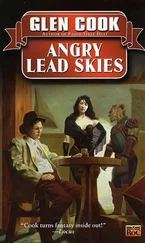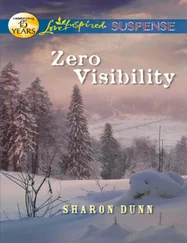The wind tugged at William’s wet hair and crept up the sleeves of his sweater, sending a shiver down his back. He took the porch steps two at a time and bounded for the forest. Now the tree trunks swayed back and forth, their bare, spiky tips slicing through the dense fog billowing off the ocean. Usually it took him a while to cover the distance between his house and the water’s edge because he often stopped to watch a beetle’s progress or to unravel the tight coil of a worm with his finger, but this morning he hurried along the path, anxious to get to the beach. William scowled as he hurtled past one of the B&Bers standing in the backyard — a birdwatcher with expensive-looking binoculars. He couldn’t understand why his mother loved to share their space with these strangers. Back in the city, they’d had a large, fenced-off yard where there were never any birdwatchers getting in his way or little kids wanting to play little kid games or kayakers flapping around in the water like angry birds. Whenever there were children staying at the B&B, his mother coaxed him and his sister into playing with them. Miriam seemed to like the other children, drawing them into make-believe games in which she often chased them, pretending to be an elephant or a rhinoceros. Miriam, in fact, seemed lonely and sad when the children were gone, but William preferred to be alone. Most of the time the children were much younger than him or had no interest in rocks or traps.
First thing to do this morning was to sharpen a stick. William wasn’t sure why, but he had a feeling. The wind had knocked down lots of branches, so it wasn’t hard to find a good one. He positioned himself on a rock with the branch laid across his legs and whittled the wood to a sharp point. A ragged dog, its grey coat matted with dirt and burrs, ambled over. William stiffened as the dog sniffed at his stick and his feet. He was wearing sandals and the dog gave his bare toes a lick before trotting toward the beach.
The dogs were a problem in the area. His mom said it was probably cottagers bringing their pets on holiday with them. Maybe the pets ran away or the owners were cruel and didn’t want them anymore, but the dogs were left behind. They bred and there was a pack of them now, all mutts, dogs turned wild. He never touched them. Many of them had sores or bits of their ears missing. Their eyes were shifty and they panted even when they weren’t running. Usually they left people alone and you’d only see them when they went rummaging through the garbage cans. At night it was hard to tell them apart from the coyotes. William was sure he sometimes heard them following him through the woods or watching him while he was on the beach. Some of the other residents would shoot the more troublesome ones, but no one really felt good about that. There was always a lot of talk in town about what to do about those damned dogs . Everyone called them those damned dogs . Even his mother, and she never swore.
The second thing William had to do this morning was to check the hole. He walked up the beach toward the rocky outcrop to the west, whacking with his new spear at the tall ferns that grew on the outskirts of the sand. The waves had left deep tidal pools along the rocks and he splashed through them, scattering tiny fish and sending crabs scuttling to their hiding spots. He loved the sound of their legs scratching across the boulders. On any other morning he would have stopped to peer into the puddles, maybe sent Miriam for an empty ice cream bucket so they could collect specimens. Miriam was meticulous about it, counting each crab, noting the ones that were missing legs or had odd markings, and giving each one a name. But this morning he was in a hurry. He wanted to get to the hole as quickly as possible.
He had visited this part of the beach every morning since they moved to the Sunshine Coast. It had taken him a long time to dig the hole. And it had taken him a while to pick a good spot. He chose an area protected by a rocky outcrop that stretched right into the ocean and hid the beach from view. He dug a couple of small trial holes and decided on a spot near the treeline where the sand was still damp but where the hole wouldn’t fill with too much water. The first week he started digging right after lunch and only stopped when it was dark and he could hear his mother’s voice yelling bedtime . He had worked straight through the noon heat, taking breaks every fifteen minutes and running into the ocean to splash water on himself. In ten minutes he’d be dry again and by the end of the day his body would have grown a second, salty skin. The first week had been hard work.
The second week it rained and he was down in the hole every day with a bucket trying to keep it from caving in. He found an old abandoned shed back in the forest. It was covered in moss with half the roof sunk in and the windows thick with spiderwebs. He pulled some old boards from the siding, dragged them through the forest, and propped them up along the sides of the hole, trying to hold up the walls. Since then, luckily, there’d been a dry spell.
In the third week, with the weather hot and sunny again, the hole was deep enough that it provided a little bit of shade while he worked. The challenge in the third week had been getting in and out of the hole. One day he had dug so fast and deep that he couldn’t get back out. For a while he had been convinced he had captured himself. He screamed for ten minutes straight and no one came. Then he sat and cried for another five. He imagined Miriam peering down at him with all her questions and then going to tattle — or worse, the B&B kids wandering over and staring with their googly eyes. They would think he was some sort of treasure or a wild sea creature, wet and thrashing, trying to get back to the water. Finally he discovered he could claw his way out, but that meant partially refilling the hole.
The next day he rigged a long rope he found in the abandoned shed to a nearby tree and used that to get in and out. The rope was dry and brittle, but it held. When the hole was deep enough — almost two feet taller than William — he covered it with large branches. He warned his sister not to go to that part of the beach. He told her there was a dead whale with its eyes pecked out, and that it stank so bad you would throw up on the spot if you went anywhere near it. She kept away from the whole area, but every few days she would ask him if the whale was still there. He would tell her about the carcass in different stages of decomposition: the tail munched away, the fin all droopy and slimy, crabs happily eating away the huge whale tongue. Miriam would listen to his stories and wrinkle her nose. Sometimes she’d gag or pretend to plug her ears. One day, he guessed, the whale would disappear and he wouldn’t have to lie anymore.
He never worried about his mom wandering in that direction. She liked to walk east, probably because it wasn’t so rocky. The beach stretched out smooth and glossy at low tide, as if the land and water were one. William’s mother warned them to be careful walking out on the sand. The ocean could be tricky, could sneak around you until you were left standing on an island, alone. Miriam had become uneasy about this and kept one eye trained on the ocean at all times when she was looking for shells.
Their mother’s walks were a habit now and came after dinner without any announcement. Miriam and William were never invited along and knew not to ask. For the first few evening walks, Miriam would clutch the porch railing and cry, believing their mother was never coming back. But now they barely blinked as she quietly escaped the house. Every once in a while, though, William still followed her, but always at a distance, watching her from the forest. He would crouch behind the tall ferns, his breath shallow and painful in his chest. She stopped at a different spot every time, and when she found her spot, she would sit on the beach and sink her hands deeper and deeper into the sand, staring out at the water. Sometimes she sat for a couple minutes and sometimes she sat for an hour. The longer she sat at the beach, the greater the chance she would cry. When she was finished, she stood and wiped off her bottom, but with her hands covered in sand she usually just made it worse. There was always sand in the house. She made William and Miriam take off their sandals and hose off their feet before they came in, but she never noticed when she tracked the sand in herself.
Читать дальше












